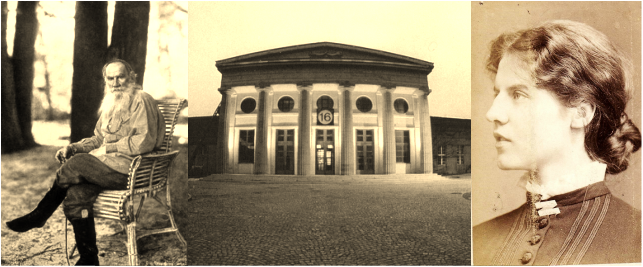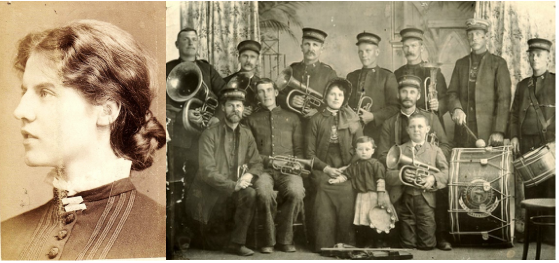The Professor had heard a very wonderful and powerful message spoken by the Maréchale on the futility of life without Christ and had been deeply moved by it. On that same night, the Maréchale approached the Professor.
“Professor I have come to have a little talk with you”
That was just what he too desired.
“I am a Tolstoyist,” he said, and at once began to tell her of his theories. “We must work out our own salvation. All men are naturally equal, no one superior, no one inferior to another, and all should live the simple life, the life of nature!”
“Professor,” said the Maréchale, “this kind of talk is a reflection on God who made us. We are not all made with the same faces, nor with the same gifts. My mother could not wash clothes; if she tried it she would faint away. Why should we all attempt to do the same work?”
He flung away his cigar and exclaimed, “Look at those people round about here! I don’t want my children to grow up and just be like them. They do nothing but live for themselves. They all go the general round with everybody else.”
“What are you going to do, Professor?”
“I have taken a farm, where a hundred of us are going to live the life of peasants, wearing blouses and tilling the soil.”
“You won’t be there four-and-twenty hours before you will have quarrels and disputes. I have had some experience in dealing with humanity, and with all the gifts and graces of the Spirit it is difficult to keep people in love and harmony. Without that it will be a great failure.”
Then he broke out again. The only thing to put the world right was human effort, mechanical labour, the simple life according to nature... and so he ran on and on, eloquently expounding his theories. It was now about one o’clock in the morning when the Maréchale said, “Listen to me. One thing strikes me. You have never said a word all this time about sin. That is the great fact which confronts us in every nation, community, family, and you have never mentioned it—sin!”
“Oh,” he said, “we don’t say sin, we say sickness.”
“I am not going to quarrel with you about terms. Express the thing as you will, there is the great fact. You shelve it, but you have to face it. There is the great obstacle to all improvement—this fact of sin. Selfishness, call it what you please. Professor, what would you say to a murderer? This man is very sick indeed? Yes, and where is the doctor?”
The Professor looked in to the fire with his dreamy blue eyes, and made no answer. She touched his arm and said, “Here’s a drunkard. He has tried a hundred times to give up drink and failed. Professor, I bring him to you. What have you to say to him?”
“I will tell your drunkard that he is to exercise his will.”
“Is that all? Nothing more? You would insult my poor drunkard, telling him to exercise his will. He has no will to exercise!”
The Professor again dropped his head, looked in to the fire, and was silent.
“Do you not see,” she continued, “the will is broken—fallen with the rest of us? It is powerless, as tens of thousands would cry out. There is where we need a Saviour—a Divine hand that will take hold of our poor human need and lift us up—some One who will come into our hearts and bring new aspirations, new desires.”
It was about two o’clock when the Professor turned to her and said, “I throw up the sponge!” and the Tolstoyan, groping after the truth and sincerely eager to find it, added, “Pray for me, Maréchale. Live for us, give us the faith that will change us all.”
He asked her to speak in the great Volkspalast of Amsterdam, which holds four thousand people. She consented, and asked him, “What shall I say?”
“Say to them what you have said to me. Just tell them the same thing.”
Some time afterwards, when she was in Amsterdam, he went to observe the work that the she was doing with some of the best and some of the worst types of human nature. He was deeply moved while she talked to young girls who had fallen into evil ways. And he acknowledged that while sin—self-love—mocks our ideals and prevents them from being realised; while sin keeps us moving in an endless circle like a dog running after its tail; while we can no more save ourselves from sin than we can escape from our own shadow, the love of Another introduces us into a new world, gives us a new nature, and makes all things possible, even growth into the likeness of Christ, who not only breaks the power of sin, but makes us partakers of His holiness.
The Professor learnt that the simple life of obedience to Christ is for all men and nations, the divine way of victory and progress. The idealist had found his true Ideal. This same Professor is now with Him, seeing Him face to face, changed into His image…


 RSS Feed
RSS Feed